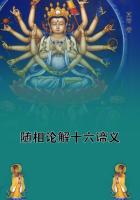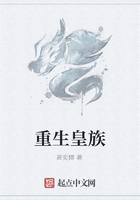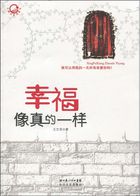the ardent and tropical treble note leaving its own proper sphere and nestling cozily down in the bass staff. But the hero and heroine of the music-drama were husband and wife; therefore the phrases are intertwined sufficiently for propriety, but not too closely for pleasure. We might also say, considering Fatima's probable fate, that we cannot wonder that she sings in a low key; and the exceedingly involved contrapuntal complications in which the motive terminates hint perhaps at Wagner's opinion on the momentous question,"Is marriage a failure?"Next we have the "_Bruder_Hoch_zu_Ross_Motiv_" (Brothers on a High Horse Motive), announced by sparkling Tetrazzini chromatics, always at sixes and sevens, darting and dashing, centaur-like, in semi-demi-quavers, like horses' manes and tails mounting skyward, whinnyingly. Fatima's brothers have come to make a wedding visit to their beloved sister, whom they believe happily united to a nobleman of high degree. They have also come because in a music-drama action is demanded and choruses are desirable;being noisy, impressive, popular, comparatively cheap, and the participants less temperamental in character than soloists, therefore more easily managed.
[Bruder Hoch zu Ross Motiv] (with devil-may-care speed.)If you miss some of the wonderful sinuosity, some of the musical curvatures of the similar "Horses in a Hurry Motive" in "Die Walku're," I can only suggest that the Brothers' mounts were not as the fleet steeds of the gods.
Fatima's people were living in genteel poverty, and the family horses were doubtless some-what emaciated; therefore the musical realist could not in honesty depict them other than in an angular rather than curved movement.
The overture next takes up the arrival of the Brothers, who, as the music plainly assures us, dismount, feed their steeds, perform a simple toilette at the stable-yard pump, and then come suddenly upon Bluebeard, whose frenzy for disposing of fresh wives is as sudden and as all-absorbing as his desire to annex them. At the moment of the Brothers' opportune arrival Bluebeard is on the point of severing Fatima's relations with the world.
The Brothers advance. A cloud of dust envelops them; they rush forward, dealing telling blows, and the frantic bleating of fleeing sheep is heard in a wild double-tonguing of the united brass instruments, very effective, especially in the open air, though a little trying to nervous ladies in the front rows of an opera-house. This is the celebrated "_Kilkennische_Katzen_Motiv_" (Motive of Mortal Combat). It is a syncopated movement, and when given at the piano, is to be played furiously, first with one hand and then with the other, till the performer is quite weary.
[Kilkennische Katzen Motiv] (ad infinitum, until one is deceased)We find all through these measures most peculiar phrases, introduced by half-formed musical rhythms, which are a presentiment of the mental unrest and nervous prostration of Fatima, who does not know whether Bluebeard will kill the Brothers or the Brothers will kill Bluebeard. She has never been an opera-goer and does not realize that there are inexorable laws in these matters and that the villain always dies; that he agrees in his contract to die, no matter how healthy he may be, no matter how much he dislikes it nor how slight the provocation. However, this scene is made notable by the famous "Suspense Motive," one hundred and seven-teen bars of doubt given by the big brasses and contra-bassoons.
There is much in this sort of programme music that is not easily intelligible to a young man who, having purchased an admission ticket, is wandering from back to back of one opera-box after another; but when fully comprehended, these special phrases are replete with emotion and insight.
Several motives are so dexterously woven into one gush of melody that they cannot be disentangled by any ordinary method, and have to be wrenched apart by the enthusiast, who employs, when milder means fail, a sort of intellectual dynamite to extricate the meaning from the score. With the aid of this lecture, which is better than an ear-trumpet and a magnifying-glass, we can, however, trace a "_Schwert_Motiv_" (Sword Motive), showing the weapons used in the combat; the "_Glu'ckseligkeit__Motiv_" (Felicity Motive), well named, for we must remember that Fatima is witnessing the duel from the castle window, her heart beating high at the prospect of widowhood; and, toward the end, the famous "_Ausgespielt_Motiv_" (Motive of Spent Strength and Spilled Blood).
[Glu'ckseligkeit Motiv]
[Ausgespielt Motiv]















